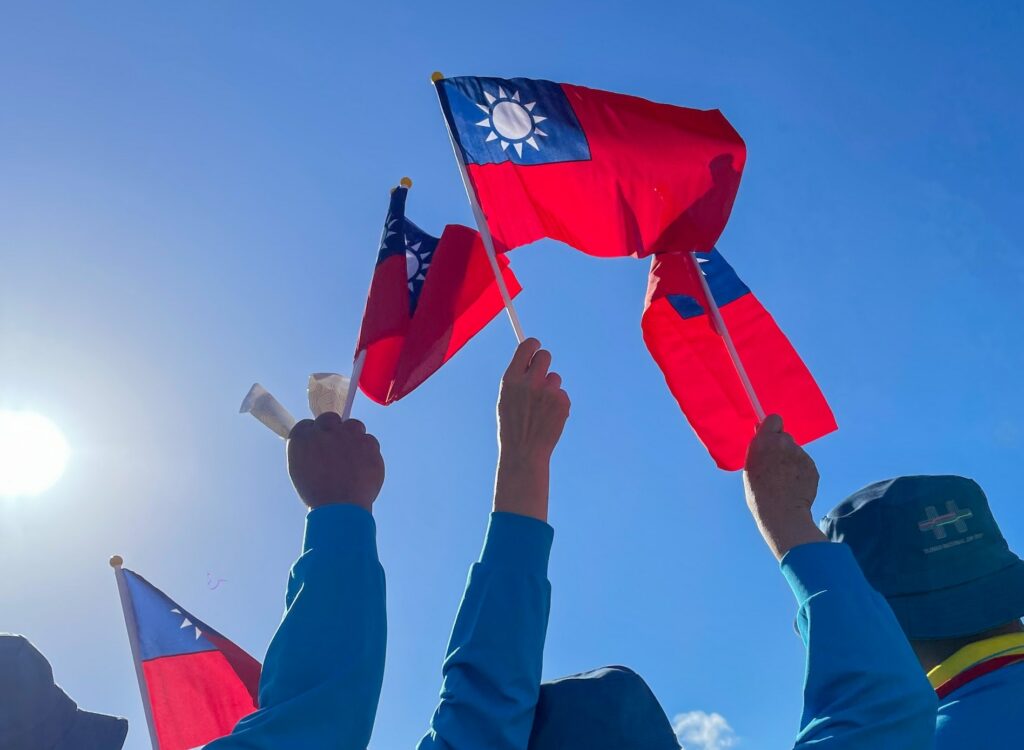
(Scypre.com) – In a historic turn of events, Taiwan’s Democratic Progressive Party (DPP) achieved an extraordinary third consecutive presidential victory on a Saturday that saw voters undeterred by China’s ominous warnings of increased conflict risks. Vice President Lai Ching-te, the current face of Taiwan’s political landscape, declared victory amidst thousands of jubilant supporters. Lai’s triumph is not just a political success but a testament to the Taiwanese people’s unwavering commitment to democracy, as he highlighted in his post-victory rally speech.
“This is a night that belongs to Taiwan. We managed to keep Taiwan on the map of the world,” Lai proclaimed, underlining the global significance of Taiwan’s democratic resilience. Amidst the celebrations, Lai expressed hope that China comprehends the democratic aspirations of the Taiwanese people, emphasizing the underlying message of the election to the international community.
China swiftly responded, asserting its longstanding claim that “Taiwan is part of China.” Lai’s running mate, Hsiao Bi-khim, who had previously served as Taiwan’s top envoy to the United States, was elected Vice President, adding another layer to the evolving dynamics between Taiwan and its powerful neighbor.
The electoral landscape revealed that Lai, representing the DPP, secured just over 40% of the total votes, according to Taiwan’s Central Election Commission (CEC). The main opposition, Kuomintang (KMT) party candidate Hou Yu-ih, garnered 33.49% of the votes, while Taiwan People’s Party (TPP) candidate Ko Wen-je received 26.45%. With a participation rate of just over 71%, the election showcased Taiwan’s vibrant democratic credentials, addressing a mix of livelihood issues and the complex question of dealing with China.
The DPP’s perspective, asserting Taiwan’s de facto sovereignty and advocating for strengthened defenses against China’s threats, received substantial voter backing. The result signifies a bold stance against eight years of assertive tactics from China, led by President Xi Jinping, who envisions Taiwan’s eventual reunification with the mainland as a “historical inevitability.”
China’s response to the election result was predictable, with a spokesperson for China’s Ministry of Foreign Affairs emphasizing the enduring principle of “one-China” and urging the international community to support opposition to “Taiwan independence.” The Taiwan Affairs Office insisted that the election result “does not represent the mainstream view on the island.”
Internationally, Lai received congratulations from various world powers, with U.S. Secretary of State Antony Blinken commending Taiwan’s robust democratic system. However, the strained relations between Lai and China’s Communist Party leaders suggest that any improvement in ties between Beijing and Taipei is unlikely.
Lai’s victory comes at a crucial juncture in global politics, as the United States seeks to stabilize relations with China. During the previous administration, Taiwan strengthened ties with the U.S., its primary international supporter. The Biden administration plans to send an unofficial delegation to Taipei, maintaining a longstanding policy toward Taiwan, regardless of the leadership change.
The election outcome deals a significant blow to Taiwan’s Kuomintang, a party favoring warmer relations with Beijing. China’s desire to see the KMT return to power was evident during the campaign, where accusations were leveled against Lai and the DPP for unnecessarily escalating tensions with China.
Looking ahead, Lai faces challenges on multiple fronts, including addressing economic grievances and unaffordable housing. However, on issues of foreign policy and cross-strait relations, he is expected to follow in the footsteps of outgoing president Tsai Ing-wen.
China’s potential responses to the election result are being closely watched. Analysts predict economic and military pressures as tools to express displeasure, with potential coercive measures that could impact trade agreements and military maneuvers in the Taiwan Strait. While the risk of accidents and miscalculations increases with heightened tensions, it doesn’t necessarily indicate an imminent conflict.
U.S. President Joe Biden stated on Saturday that the United States does not endorse the independence of Taiwan following the Taiwanese voters’ rejection of China’s influence, securing a third presidential term for the ruling Democratic Progressive Party (DPP).
Lai Ching-te, the DPP’s presidential candidate, assumed office, firmly resisting Chinese pressure and vowing to both confront Beijing and pursue diplomatic dialogue. When asked about the election results, Biden asserted, “We do not support independence.”
Prior to the polls opening, the U.S. had issued a warning, stating that it would be unacceptable for any country to interfere in the election. Taiwan, a democratic island claimed by China, has been a success story since its first direct presidential election in 1996. Despite the absence of formal diplomatic ties, the United States remains Taiwan’s crucial international supporter and arms supplier.
U.S. Secretary of State Antony Blinken congratulated Lai Ching-te and emphasized the commitment to maintaining cross-strait peace and stability, advocating for the peaceful resolution of differences. The U.S. looks forward to collaborating with Taiwan’s leaders in line with its one China policy. The Biden administration is cautious about potential conflicts with Beijing arising from the election, transition, and the new administration.
Biden, seeking improved relations with China, has engaged in talks with President Xi Jinping. Taiwan anticipates Chinese pressure on its incoming president, including military maneuvers near the island. In a display of support, Biden plans to send an unofficial delegation to Taiwan, potentially comprising former high-ranking American officials.
This move recalls the 2016 incident when then-President-elect Donald Trump’s conversation with President Tsai Ing-wen angered China, marking the first direct communication between U.S. and Taiwan leaders since diplomatic recognition shifted to China in 1979 under President Jimmy Carter.